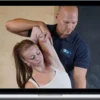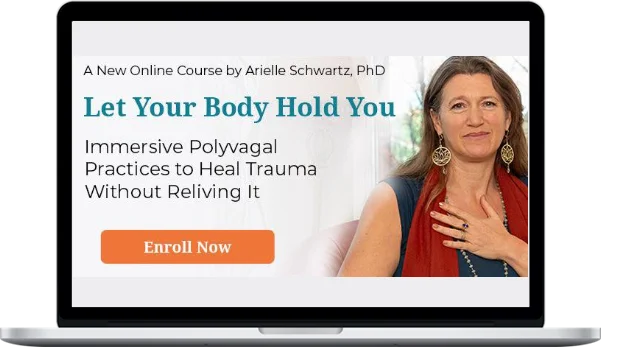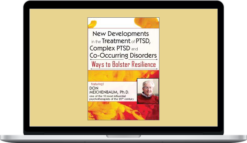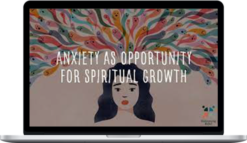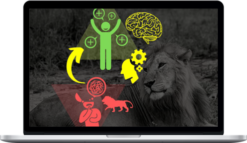Arielle Schwartz – Let Your Body Hold You – Online Course
$97.00 $39.00
Total Sold: 2
»Instant Delivery
Description
Arielle Schwartz – Let Your Body Hold You – Online Course
Immersive Polyvagal Practices to Heal Trauma Without Reliving It by Arielle Schwartz, PhD
Schwartz takes a strengths-based, embodied approach designed to meet the unique needs of those recovering from childhood trauma, PTSD, complex PTSD, and dissociation, drawing on several evidence-based and well-researched complementary modalities including:
- Polyvagal theory
- Somatic psychology
- Eye movement desensitization and reprocessing (EMDR)
- Emotional freedom technique (EFT)
- Mindfulness-based therapies
- Relational psychotherapy
Introductimh Let Your Body Hold You
In Let Your Body Hold You, leading trauma expert and somatic psychologist Arielle Schwartz, PhD, teaches evidence-based and complementary, body-centered practices to help you return to a sense of safety, resilience, and hope without reliving your trauma.
You’ll start by learning about polyvagal theory, how trauma can cause the nervous system to get stuck in survival modes like fight, flight, or freeze and become out of balance, and how you can regain your balance, feel calm, and heal.
You’ll also learn how connection plays a vital role in healing trauma and how to build healthier relationships with others and with yourself.
Over seven weekly modules, you’ll learn a wealth of healing practices including vagus nerve stimulation, conscious breathing, bilateral movement, mindful movement, and more to help you rewire your nervous system and reclaim your well-being.
Arielle demonstrates and gently guides you through every practice step-by-step, allowing you to feel deeply held and supported on your journey to recovery.
Journaling, self-reflection, audio meditations, and other experiential activities included throughout the course ensure that you fully absorb and embody the material.
You’ll come away with a comprehensive collection of powerful tools to help you create a meaningful, enjoyable, and satisfying life.
Insights, Tips, and Tools to Help You Thrive
- Embrace Your Path to Well-Being
- Understand trauma
- Recognize the role of self-compassion for recovery
- Explore how trauma affects the nervous system
- Develop body, mind, and emotional awareness
- Learn the importance of connection for healing
Regulate Your Energy and Emotions
- Balance your nervous system
- Restore a sense of ease, freedom, and safety
- Feel at home and connected with your body
- Improve mental clarity
- Achieve restorative rest
Build a Fulfilling Life
- Integrate body-centered practices into your day
- Navigate barriers to recovery
- Build strong Relationships
- Respond to life’s challenges with resilience
- Move beyond trauma
The Key to Healing
Polyvagal theory, often referred to as the “science of safety,” explains how your autonomic nervous system and vagus nerve regulate your emotions, social engagement, and response to stress.
As you go through the day, your nervous system monitors your body and the environment for signs of safety or danger and responds with three general states: relaxed, mobilized, or immobilized.
When this system is functioning well, you move freely between states and combine them to best meet your needs.
For example, when you’re in a mobilized and safe state, it allows you to feel motivated, energetic, and ready to face a challenge, then smoothly return to a state of relaxation and safety once the challenge has passed.
Alternatively, if you’re in a mobilized and threatened state, you may feel fearful and anxious, but you’re still able to return to a state of relaxation and safety once the danger subsides.
This state of fear is a vital part of how your nervous system keeps you safe.
But when you’ve experienced trauma, you can get stuck in the anxious, fearful state or the shut down, disconnected state, and find it difficult to return to a feeling of safety.
By practicing the techniques taught in this course, you can restore and improve the flexibility of your nervous system, allowing it to function in a balanced manner.
With your newfound resilience, you’ll be empowered to heal from the past, fully engage in the present, and grow beyond trauma.
What You’ll Learn In Let Your Body Hold You
Course Includes:
- Engaging Video Lessons
- Downloadable Worksheets
- Guided Audio Meditations
- Lifetime Access
- Bonus Video:
- Grow Healthy Relationships
- Satisfaction Guarantee
Course Outline
Your Roadmap to Resilience
Module 1: The Science of Safety
- Welcome
- A Guide to Your Journey
- An Arriving Practice
- Understanding Trauma
- The Nervous System
- What Is Polyvagal Theory?
- The 5-Point Check-In
- Safety and Containment
- Grounding Tools
- A Roadmap for Resilience
Module 2: The Gift of Connection
- A Circle of Allies
- The ABCs of Relationships
- Your Attachment Styles
- Co-Regulation
- Self-Regulation
- Meditating on Self-Compassion
- Embodying Self-Compassion
- Bonus: Grow Healthy Relationships
Module 3: Toning the Vagus Nerve
- What Is Vagal Tone?
- The Mind-Body Superhighway
- Boosting Neuroplasticity
- The Upward Spiral Exercise
- Vagus Nerve Stimulation
- Cold and Breath Techniques
- Facial Self-Massage
- Ear Self-Massage
- Neck Self-Massage
Module 4: Conscious Breathing
- Emotions and the Breath
- Riding the Wave
- The Anatomy of the Breath
- Breath–Heart Connection
- Paced Breathing
- Energizing/Calming Breaths
- A Grateful Heart
Module 5: Bilateral Movements
- The Left and Right Brain
- Alternate Nostril Breathing
- Butterfly Tapping Practice
- EFT Tapping Practice
- The Upper and Lower Brain
- Reflex Integration
- A Pairing Practice
Module 6: Mindful Movement
- Healing Through Movement
- Creating a Sense of Safety
- Mindful Movement Practices
- Vagal Efficiency
- Defying Despair
Module 7: Rest and Restore
- Your Relationship to Rest
- Anchoring
- Mindful Walking
- Mindful Cup of Tea
- Mindfulness Meditation
- Guided Relaxation
Conclusion: The Rhythms of Regulation
- Daily Practice
About Arielle Schwartz
Arielle Schwartz, PhD, is a licensed clinical psychologist, certified clinical complex trauma professional, EMDR consultant, and Kripalu yoga teacher. As a faculty member with the Polyvagal Institute, she is a course instructor on mind-body approaches that apply polyvagal theory for trauma recovery.
She is an internationally sought-out speaker, leading voice in the field of trauma recovery, and author of nine books, including The Polyvagal Theory Workbook for Trauma: Body-Based Activities to Regulate, Rebalance, and Rewire Your Nervous System Without Reliving Your Trauma, Applied Polyvagal Theory in Yoga: Therapeutic Practices for Emotional Health, and Therapeutic Yoga for Trauma Recovery Flip Chart: A Psychoeducational Tool for Embodied Healing through the Lens of Applied Polyvagal Theory.
More courses from the same author: Arielle Schwartz
Delivery Policy
When will I receive my course?
You will receive a link to download your course immediately or within 1 to 21 days. It depends on the product you buy, so please read the short description of the product carefully before making a purchase.
How is my course delivered?
We share courses through Google Drive, so once your order is complete, you'll receive an invitation to view the course in your email.
To avoid any delay in delivery, please provide a Google mail and enter your email address correctly in the Checkout Page.
In case you submit a wrong email address, please contact us to resend the course to the correct email.
How do I check status of my order?
Please log in to HealthcareCourse account then go to Order Page. You will find all your orders includes number, date, status and total price.
If the status is Processing: Your course is being uploaded. Please be patient and wait for us to complete your order. If your order has multiple courses and one of them has not been updated with the download link, the status of the order is also Processing.
If the status is Completed: Your course is ready for immediate download. Click "VIEW" to view details and download the course.
Where can I find my course?
Once your order is complete, a link to download the course will automatically be sent to your email.
You can also get the download link by logging into your HealthcareCourse account then going to Downloads Page.
Related products
Total sold: 2
